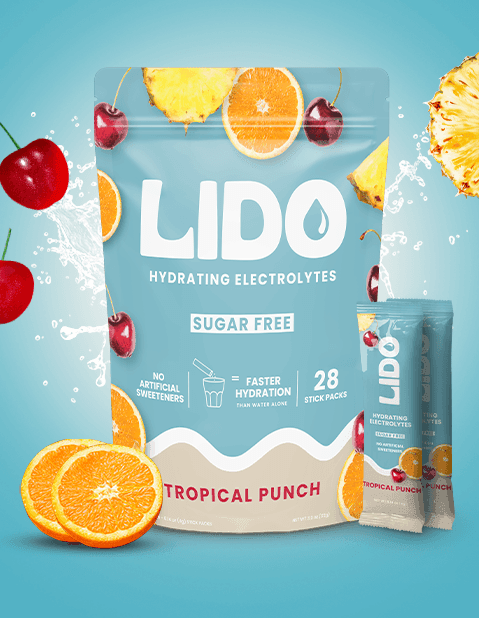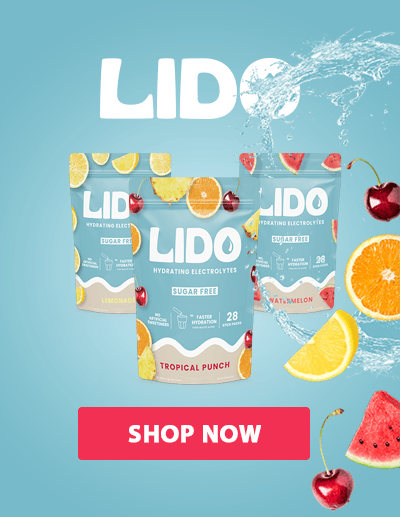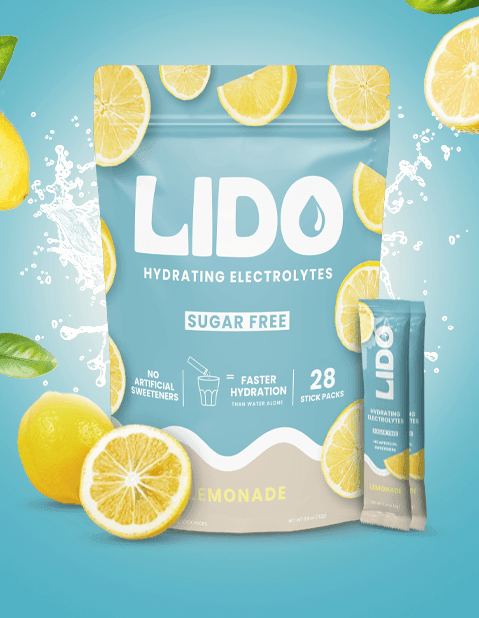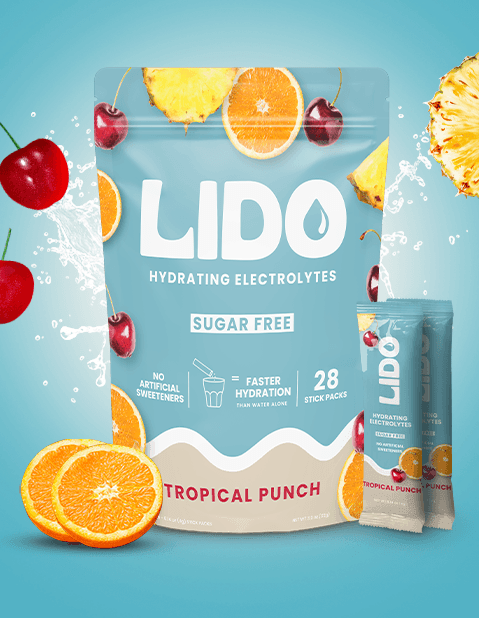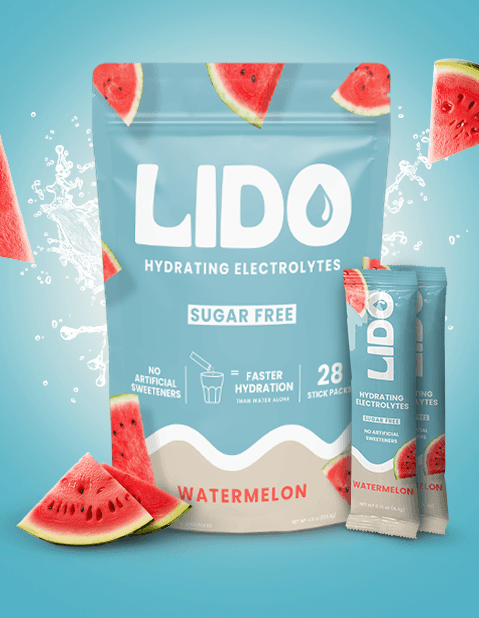8 Reasons You Feel Nauseous After Drinking Water—And How to Avoid It
Jennifer DouglasShare

Do you ever feel like your last meal is coming back up to say hello after drinking water? Many describe it as feeling sick to the stomach—something you’d expect from a wild theme park ride or overindulging at Thanksgiving dinner. But good old H2O? How could something said to ease nausea make you feel queasy?
Stick around as we get to the bottom of that post-drink stomach discomfort, or water-induced nausea, as it’s called. We’ll explain what it is, how and why it occurs after drinking water, and how to prevent future occurrences.
Understanding Nausea
What is Nausea?
Dr. Doug Purdy, a gastroenterologist at UnityPoint Health, defines nausea as “a symptom commonly associated with an upset stomach or uneasiness of the stomach.” In most cases, nausea creates an urge to throw up but doesn’t always lead to vomiting. You may, however, experience other symptoms, including fever, dizziness, fatigue, light headedness, cold sweating, and increased salivation.
It’s also important to note that nausea alone is not a medical condition; it’s a symptom of something else—like an illness, a lifestyle change, or a sign that something isn’t quite right in the digestive system.
Why Do You Feel Nauseous in the First Place?
It’s a question that perplexes many, but Dr. Camilo Ruiz, an internist and sleep specialist, provides some clarity: “It typically has to do with the body’s response to a stressor, so people start having retching, increased salivation, a feeling of vomiting, and queasiness in the stomach.”
Moreover, health experts believe that nausea functions as part of a protective reflex that warns against potential toxic ingestion or other underlying disturbances. This explains why you feel like you might puke after eating a bunch of greasy, fried, or spicy foods or being on a boat far out at sea.
The Science Behind Nausea
As for exactly how nausea works, PhD biologist James MacDonald says it’s not entirely understood and can depend on the cause. He explains that conditions like seasickness and morning sickness may evoke different nausea responses, so no single process describes all.
However, MacDonald offers some insight into the general mechanism involved: “Neurotransmitters, particularly dopamine, or alkaloid compounds such as apomorphine, act directly on receptors in the brain’s 4th ventricle, a cavity near the brain stem. When these receptors are activated, nausea results. Some conditions, such as inflammation of the gut, stimulate the brain to induce nausea directly.”
In other words, when the brain perceives something as harmful, like a drug, chemical, or virus in the stomach, or a physical disturbance occurs in some areas of the body, it communicates to the gut that something’s wrong and triggers a chain of events that creates the sensation of nausea and sometimes vomiting to get rid of the toxin.
Why Do You Feel Nauseous After Drinking Water, and How Do You Prevent It?
For many people, nausea tops the list of the worst feelings ever—even more so after drinking something that’s supposed to make you feel refreshed and hydrated: water. But what provokes this not-so-pleasant feeling? It can be tricky to pinpoint the exact culprit, but let’s explore some of the most common causes and how to prevent them.
1. The water contains nausea-inducing irritants.
Infusing your water with lemon or other citrus fruits is an easy way to add a kick of flavor and make the water more drinkable. It’s also a well-known wellness hack, as you’ll find people raving about the many health benefits of fruit-infused water online—from regular folks to celebs and health experts. However, those health perks can come with a massive tradeoff for some people.
“Because of their high acidic levels, citrus fruits like lemons, limes, and oranges can cause acid reflux and stomach pain,” according to the Gastroenterology Healthcare Associates. A recent study also links nausea to other additives, such as sugar or artificial sweeteners (like those found in some water flavor packets you can add to plain water).
Prevention Tip: If citrus fruits don’t play well with your stomach, NY Allergy & Sinus Centers recommends avoiding them and all products with citrus ingredients. Also, speak to your doctor to see if you have an allergy and for further guidance. Be cautious of additives in water flavorings and other products that may trigger gastrointestinal discomfort and nausea.
2. The water is contaminated.
When irritants in your water aren’t the offenders behind your nausea symptoms, it could be that your water contains nausea-triggering contaminants. According to the Centers for Disease Control and Prevention (CDC), certain germs, including Cryptosporidium, Campylobacter, E. coli, and Giardia, can contaminate tap water.
“Water contamination can have a substantial impact on digestive health, resulting in various gastrointestinal illnesses,” says Dr. Sudeep Khanna, senior consultant and gastroenterologist at Indraprastha Apollo Hospitals in New Delhi. As Khanna also points out, “Pathogens present in polluted water, such as E. coli, Salmonella, and Campylobacter, can induce gastroenteritis, resulting in abdominal pain, diarrhea, vomiting, and nausea, upsetting gut flora and potentially leading to serious problems.”
It’s not just pathogens that pose a concern, however. “Heavy metals in water, such as lead, arsenic, and mercury, can cause chronic abdominal pain, nausea, and vomiting, as well as long-term damage to important organs such as the liver and kidneys,” according to Khanna. “The gastrointestinal tract, being the primary pathway for toxin absorption, is particularly vulnerable to their adverse effects, perhaps creating long-term stomach disorders,” he continues.
Prevention Tips:
- The CDC urges you to be mindful of the water you drink wherever you go. They recommend only drinking water that you know is safe, like sealed bottled water or water that has been freshly boiled for coffee or tea.
- Avoid drinking tap water, using ice cubes made from tap water, or drinking beverages that may have been mixed with unsafe water.
- It’s also important to test your water supply at home to ensure it is free from nausea-inducing contaminants. If any are detected, install a water filter to eliminate them.
- You should also look at the air quality in your home and we always suggest an air purifier in every room as well.
3. Drinking too much water at once.
You might be tempted to chug an entire gallon when parched, but doing so could make your stomach churn. “If you drink a large volume of water at once, your stomach will have to quickly expand to accommodate that fluid,” cautions Sarah Robbins, M.D., a gastroenterologist and gut health expert in British Columbia, Canada.
Similarly, “When you drink too fast, you tend to take in air in the process,” says Supirya Rao, M.D., the managing partner at Integrated Gastroenterology Consultants in Boston. “Additional air can cause bloating and discomfort,” she explains.
Think of the stomach like a balloon filling with water and stretching to accommodate all that extra liquid. While your stomach likely won’t pop like the balloon could (at least not if that’s your goal), it can stretch to the point where you feel bloated, uneasy, and nauseous.
Prevention Tip: Your body can only handle so much liquid at any given time before sounding the “upset stomach” alarm. Even if you’re intensely thirsty, try not to chug the water. Instead, take slower, smaller sips and observe how you feel in between.
4. Drinking water on a full stomach.
The big family feast is over. You ate as much as you could—even more than your body could handle at once. Your stomach only had room for so much, but you still decided to finish off with a tall container of water. It’s no wonder why you probably felt like you’d vomit.
Turns out, overfilling your stomach can overwhelm the digestive system and lead to nausea and indigestion. Likewise, when you drink water on a full stomach, your stomach expands beyond its normal limits to accommodate the extra water. “As those muscles stretch, the nerves around your stomach send messages to your brain to let it know that you’re filling up,” explains Cleveland Clinic.
The vagus nerve, which conveys messages between the gut and brain, signals to the brain that the stomach is full and you might throw up to release some of the pressure. Before possibly vomiting, you experience a strange sensation in your stomach.
Prevention Tip: Avoid drinking excessive amounts of water immediately before, during, or after big, heavy meals when your stomach is full and working hard. Give your stomach a chance to make room before flooding it with water again. A general rule is to drink a small amount about 30 minutes before a meal to avoid overfilling and rehydrate 1-2 hours after eating.
5. Drinking water on an empty stomach.
Drinking on an empty stomach is also not a good idea. When your stomach is empty, it tends to be more sensitive. That’s because the brain triggers the release of the hunger hormone ghrelin in response to an empty stomach or anticipation of the next meal. Ghrelin signals the body to release stomach acids to digest food.
So, if you drink a lot of water on an empty stomach, the stomach may mistake it for food. It will then start making digestive juices and acids to break down the “food.” But since there’s no actual food, just water, those stomach acids can irritate and upset your stomach instead. This can lead to feelings of nausea or wanting to throw up.
Prevention Tip: Eat a small snack before drinking water if you haven’t eaten in a while, and your stomach feels empty.
6. You have acid reflux.
When you drink water, it travels the same path as food: down the esophagus and into your stomach, where hydrochloric acid in the stomach is released to kick-start digestion. Similar to how food can cause the stomach to stretch and potentially trigger acid reflux symptoms, it turns out water can have the same effect in people with gastroesophageal reflux disease (GERD), a condition that “happens when acid from the stomach travels back up—or “refluxes”—into the food pipe (esophagus),” GoodRx explains.
When stomach acid backs up into the esophagus, it can irritate the lining and cause a burning sensation called acid reflux or heartburn, which is the main symptom of GERD, according to Johns Hopkins Medicine. This back-flow occurs when the valve between the stomach and esophagus weakens and allows stomach acid to flow back up.
Drinking water increases the amount of fluid in the stomach. If you have GERD, your stomach already contains extra acids. Adding water increases the amount of fluid in the stomach, raising the pressure and pushing some of the acidic contents back across the weakened valve into the esophagus. The esophageal lining is not meant to withstand corrosive stomach acid, so this backwash causes burning, irritation, and nausea as a protective response.
Prevention Tip: If you often experience indigestion, heartburn, regurgitation, or other telltale signs of acid reflux after drinking water, it could indicate gastroesophageal reflux disease (GERD). Make an appointment with your doctor, as medications like proton pump inhibitors or dietary/lifestyle changes may help reduce acid reflux symptoms.
7. Lying down while drinking water or shortly afterward.
When you drink water while standing or sitting upright, gravity helps the liquid reach your stomach faster. However, if you lie flat or bend over soon after, the water sloshes around in your stomach before settling.
This “sloshing” effect can stimulate the vagus nerves and trigger the vagal reflex, part of the body’s mechanism to prevent choking or vomiting. This reflex, when overstimulated, can produce sensations of nausea, explains Khiron Clinics. However, this is most likely to occur after drinking ice-cold water, according to a 2010 study.
This study involved a 35-year-old male triathlete who reported palpitations after swallowing ice-cold water following physical activity. The researchers linked it to atrial fibrillation (Afib), an irregular and often very rapid heart rhythm, which can have a variety of symptoms, including nausea.
As explained by Johns Hopkins Medicine: “When your heart isn’t functioning properly, the rest of your body — including your brain — may not get enough blood. The lack of blood supply can cause dizzy spells or light headedness. Afib dizziness may be mild or severe and cause nausea or vomiting.”
Prevention Tips:
- Stay upright for a few minutes after drinking water.
- Avoid drinking large amounts of water in one go, especially after physical activity or when feeling overheated. Instead, sip water slowly and in smaller quantities.
- If you experience palpitations, dizziness, or nausea after drinking water, especially if an irregular heartbeat accompanies it, seek medical attention immediately, as it could be a sign of atrial fibrillation or other underlying conditions.
8. You have an electrolyte imbalance.
You’re likely to sweat a lot while exercising, cycling to work, or working in a hot climate. And so, it’s natural to want to chug a bunch of H2O to rehydrate as quickly as possible. The problem? Ingesting more fluids than your body needs can lead to water intoxication, also known as water poisoning. Essentially, your body’s water volume becomes too much for your kidneys to excrete, which can dilute the electrolytes in your body.
First, a quick brush-up on electrolytes, according to Casey Kelley, M.D., founder and medical director of Case Integrative Health: “Electrolytes are a category of essential minerals—including nutrients like sodium, potassium, phosphorus, magnesium, and chloride—that carry a positive or negative charge.”
Our bodies need a good balance of these minerals to maintain good health. When the concentration of sodium (a rock star electrolyte) in our blood gets too low, it can lead to hyponatremia, resulting in muscle cramps, weakness, headaches, mental confusion, seizures, coma in severe cases, and yes—nausea and vomiting. Endurance athletes who drink large volumes of non-electrolyte water are at the highest risk of over hydration and hyponatremia.
Prevention Tips: If you’re concerned that an electrolyte imbalance is driving your post-hydration nausea, try replenishing those depleted electrolyte stores with electrolyte-rich foods or our sugar-free electrolyte mixes.
Final Thoughts
It’s not uncommon to feel nauseous after drinking water. It often stems from many of the habits many of us are guilty of—drinking water too fast, drinking it on a full or empty stomach, and lying down after drinking. Ingesting nausea-inducing contaminants or irritants in water can also make you more prone to post-drink nausea. Then, there are health factors like GERD and electrolyte imbalances. The good thing is that adjusting or managing these factors can help you avoid that dreaded stomach feeling. But if it doesn’t, consult your doctor for more tailored guidance.
